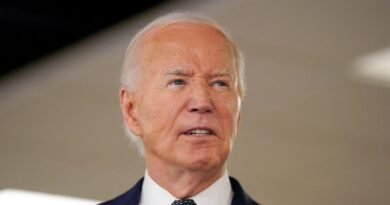The suicide of Grayson Murray serves as a stark reminder for professional golfers

May has been designated as Mental Health Awareness month for 75 years, and the recent passing of professional golfer Grayson Murray has highlighted the importance of this observance. Murray’s parents confirmed that he died by suicide last week.
On May 24, while playing at the Charles Schwab Challenge in Fort Worth, Texas, Murray withdrew from the tournament after the 16th hole due to illness. The following day, he passed away at the age of 30.
Murray, a three-time winner of the Junior World Championships, had struggled with alcohol addiction, anxiety, and depression. Despite these challenges, his victory at the Sony Open in Hawaii and his placement in the top 50 players worldwide had seemed to indicate he was on a positive trajectory. However, Murray’s parents confirmed that he took his own life.
His death shed light on the mental health struggles faced by golfers, who often compete in a solitary sport that can be mentally taxing. Other professional golfers, such as Justin Thomas, Bubba Watson, and Matthew Wolff, have also spoken about their mental health challenges. Additionally, Lexi Thompson recently announced her retirement from professional golf at the age of 29 due to the toll it was taking on her mental well-being.
Research has shown that the demands of the professional golfing circuit, including long tours away from family and friends, can negatively impact players’ mental health. Loneliness, isolation, and high psychological demands are often cited as factors affecting golfers’ well-being.
The announcement of the launch of the LIV Golf tour two years ago further exacerbated tensions within the golfing community, leading to high-profile defections and financial incentives that have divided the sport. Despite talks of a potential merger, the conflict between the PGA Tour and LIV Golf has caused disruptions in the golfing world.
Golfers, particularly those without the support of teammates, must prioritize their mental health and seek help when needed. The tragic passing of Grayson Murray serves as a reminder that professional athletes, despite their success and wealth, are vulnerable human beings who require support and understanding from their peers.
As Rory McIlroy stated, it is crucial for players to show kindness towards one another and reflect on their behavior in light of recent events. Professional golfers should unite in their shared experiences and remember the importance of compassion and empathy in their sport.
If you are struggling with mental health issues or experiencing a crisis, seek help by contacting a crisis hotline or visiting a mental health resource for support.



